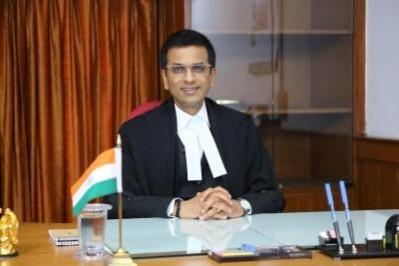
On Monday, the Supreme Court of India decided the fate and character of the state of Jammu and Kashmir. The Apex Court delivered its much-anticipated verdict on a batch of pleas challenging the government's decision to revoke special status of J&K. In its judgment, the court said, "All States in the country have legislative and executive powers. Articles 371(a) to (j) are examples of special arrangements of different States and is an example of asymmetric federalism. Thus Jammu and Kashmir does not have internal sovereignty and (is) like all States and Union Territories of India."

The five-judge Constitution Bench of Chief Justice of India (CJI) DY Chandrachud and Justices Sanjay Kishan Kaul, Sanjiv Khanna, BR Gavai and Surya Kant delivered the verdict in a batch of petitions challenging the Central government's 2019 move.
On the restoration of statehood
Before summing up the conclusions, the CJI also read that, "We direct that steps shall be taken by the Election Commission of India to conduct elections to the Legislative Assemblies of Jammu and Kashmir constituted under Section 14 Reorganization Act by September 30, 2024. Restoration of statehood shall take place at the earliest, and as soon as possible.
Were the provisions of Article 370 permanent or temporary?

While addressing the question of whether the provisions of Article 370 were temporary in nature or whether they acquired the status of permanence in the Constitution, CJI ruled that the, "Exercise of the President's power for everyday running of business cannot be subject to regular judicial review. The power of the Legislature of the State under 357 to repeal or amend the law must be read in the context of 42nd Amendment act...The repealing statute would make subsistence for the legislation. An ordinance, which is in the nature of law, has limited life."
Security measures in Kashmir have been tightened ahead of the pronouncement of judgment. The Court further said that the Presidential power to issue the notification was valid and that the court cannot sit in appeal over the decision of the President of India. "We have held that all provisions of the Constitution of India can be applied to Jammu and Kashmir and non application of mind cannot be claimed...Article 370(3) was introduced for constitutional integration and not for constitutional disintegration."
What has happened until now?
The batch of pleas challenged the Central Government's 2019 decision to revoke Article 370 conferring special status on the State of Jammu and Kashmir. Following the move, the erstwhile state was bifurcated into two separate Union Territories.
The subject matter was first listed in March 2020, and back then a five-judge Constitution Bench of the Supreme Court had decided that the matter will not be referred to a seven judge Constitution Bench, despite petitioners seeking such a reference. The petitioners comprised some of the renowned legal names in the country, including Kapil Sibal, Rajeev Dhawan, Gopal Subramanium, Dushyant Dave among others. The petitioners had termed the move an attack on federalism and against the provisions of the Constitution. On August 2, the Apex Court began the final hearing and heard the case for 16 days before reserving its judgment.

















